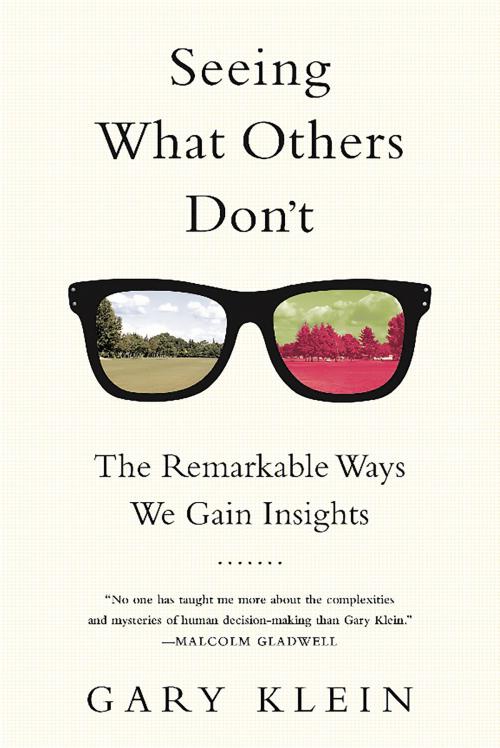Seeing What Others Don't
The Remarkable Ways We Gain Insights
Nonfiction, Health & Well Being, Psychology, Creative Ability, Applied Psychology, Business & Finance, Management & Leadership, Decision Making & Problem Solving| Author: | Gary Klein | ISBN: | 9781610392754 |
| Publisher: | PublicAffairs | Publication: | June 25, 2013 |
| Imprint: | PublicAffairs | Language: | English |
| Author: | Gary Klein |
| ISBN: | 9781610392754 |
| Publisher: | PublicAffairs |
| Publication: | June 25, 2013 |
| Imprint: | PublicAffairs |
| Language: | English |
A renowned cognitive psychologist reveals the science behind achieving breakthrough discoveries, allowing readers to confidently solve problems, improve decision-making, and achieve success.
Insights-like Darwin's understanding of the way evolution actually works, and Watson and Crick's breakthrough discoveries about the structure of DNA-can change the world. Yet we know very little about when, why, or how insights are formed-or what blocks them. In Seeing What Others Don't, Gary Klein unravels the mystery.
Klein is a keen observer of people in their natural settings-scientists, businesspeople, firefighters, police officers, soldiers, family members, friends, himself-and uses a marvelous variety of stories to illuminate his research into what insights are and how they happen. What, for example, enabled Harry Markopolos to put the finger on Bernie Madoff? How did Dr. Michael Gottlieb make the connections between different patients that allowed him to publish the first announcement of the AIDS epidemic? How did Martin Chalfie come up with a million-dollar idea (and a Nobel Prize) for a natural flashlight that enabled researchers to look inside living organisms to watch biological processes in action?
Klein also dissects impediments to insight, such as when organizations claim to value employee creativity and to encourage breakthroughs but in reality block disruptive ideas and prioritize avoidance of mistakes. Or when information technology systems are "dumb by design" and block potential discoveries.
Both scientifically sophisticated and fun to read, Seeing What Others Don't shows that insight is not just a "eureka!" moment but a whole new way of understanding.
A renowned cognitive psychologist reveals the science behind achieving breakthrough discoveries, allowing readers to confidently solve problems, improve decision-making, and achieve success.
Insights-like Darwin's understanding of the way evolution actually works, and Watson and Crick's breakthrough discoveries about the structure of DNA-can change the world. Yet we know very little about when, why, or how insights are formed-or what blocks them. In Seeing What Others Don't, Gary Klein unravels the mystery.
Klein is a keen observer of people in their natural settings-scientists, businesspeople, firefighters, police officers, soldiers, family members, friends, himself-and uses a marvelous variety of stories to illuminate his research into what insights are and how they happen. What, for example, enabled Harry Markopolos to put the finger on Bernie Madoff? How did Dr. Michael Gottlieb make the connections between different patients that allowed him to publish the first announcement of the AIDS epidemic? How did Martin Chalfie come up with a million-dollar idea (and a Nobel Prize) for a natural flashlight that enabled researchers to look inside living organisms to watch biological processes in action?
Klein also dissects impediments to insight, such as when organizations claim to value employee creativity and to encourage breakthroughs but in reality block disruptive ideas and prioritize avoidance of mistakes. Or when information technology systems are "dumb by design" and block potential discoveries.
Both scientifically sophisticated and fun to read, Seeing What Others Don't shows that insight is not just a "eureka!" moment but a whole new way of understanding.















